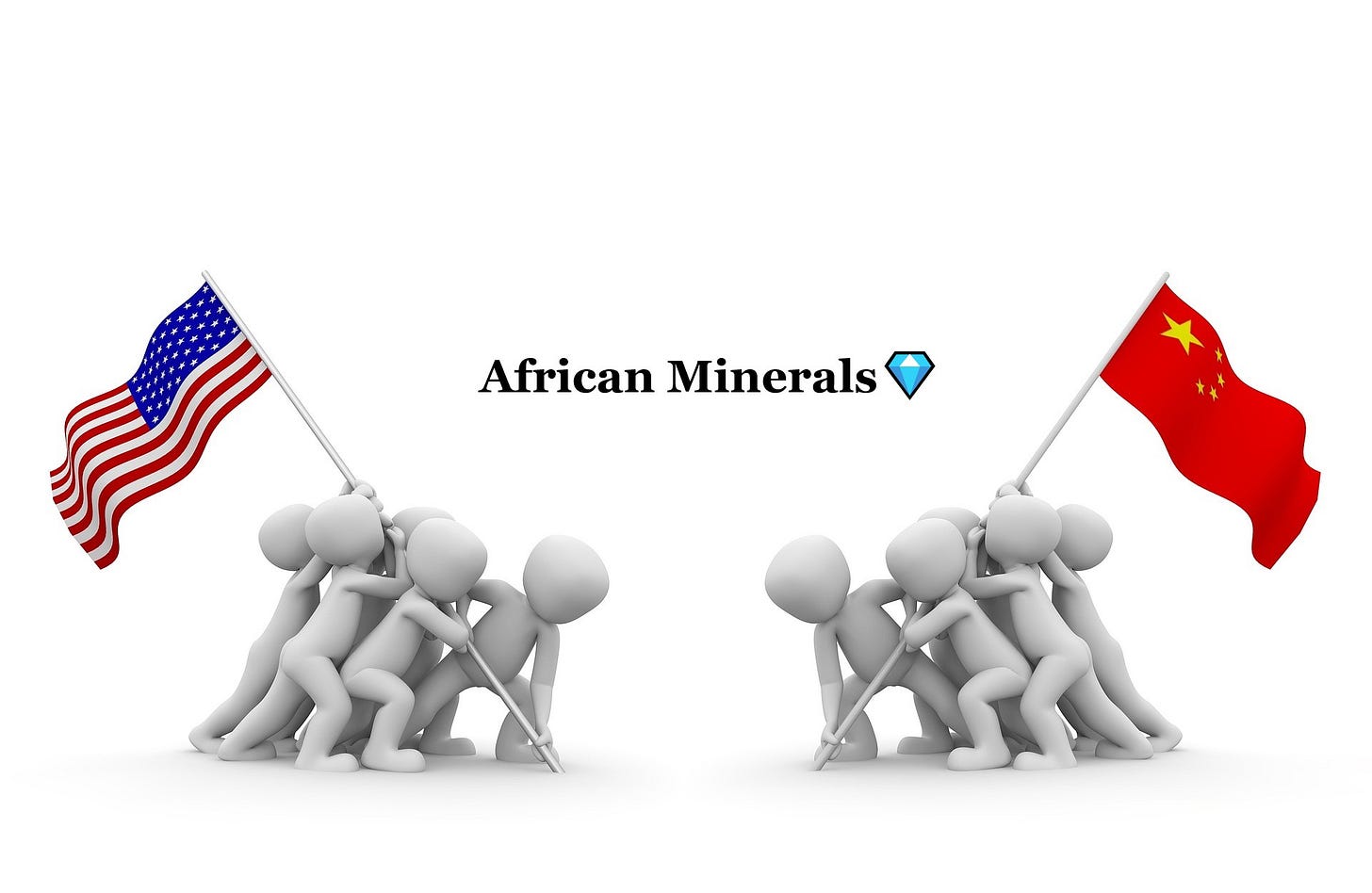Africa's minerals and the shocking arrogance of the West
@The Economist: It's not a contest between the US and China, these are African resources, and Africa is our business, not anybody else's
Last week, The Economist published an article on "How America plans to break China's grip on African minerals."
The arrogance of the title was so shocking it gave birth to this post. What level of hubris is it to think Africa has no say in its affairs? What arrogance to believe Africa will sit down, head tilted in deference, and smile demurely as foreign countries play dominance games on its soil?
Sadly, this perception that Africa has minimal authority over its mineral resources has always marked Africa’s interaction with the West and, more recently, China.
The article touched on it when it noted that the US had pledged to do mining differently from how China and the West did it in the past.
That the US wants to do better sounds pretty, but such declarations are just as problematic.
They suggest that it is up to the US (or the West at large) to set the rules of engagement with Africa. Such statements give the impression that Africa lacks the power to set favorable rules of engagement for itself and demand that every other entity abides by them.
If the continent is powerless to do anything, isn’t the ongoing jostle for power between different foreign forces in Africa just a subtler, smarter, and more sophisticated scramble for Africa wrapped in pretty words, and seemingly well-intentioned actions?
The competition for Africa’s green minerals is too reminiscent of the first scramble for Africa.
In colonial Ghana, for instance, one of its best-known chiefs—Nana Sir Ofori Atta I—testified before the Legislative Council in 1939 about how six of his brother chiefs signed away concessions to foreign mining companies for $66, $133, $50, $50, $200 and $100 respectively.
The contract the chiefs signed stated that the monies were payable to the chiefs in exchange for the Ashanti Goldfields, and the chiefs would not be entitled to any of the profits earned. Oh, and the mining companies would not pay taxes.
Today, it is not $66 or $100. It is 6 or 4 billion US dollars, but the spirit of the contracts is still the same—for foreign mining companies to make the maximum profit at the expense of the continent.
How else do you explain Acacia Mining (a foreign mining company in Tanzania) owing the Tanzanian government $40 billion in unpaid taxes and $150 billion in penalties due to undeclared export revenues?
Similarly, China Moly—a mining company in DRC—withheld $7.5 billion in royalties and taxes.
No wonder the arrogance! The West has gotten one up on Africa for so long, it’s become accepted that Africa is a perpetual whipping dog waiting to be told to bark, and it asks how loud.
How else would such a respected publication be bold enough to run with that title?
Still, I do not place the entire blame on foreign multinationals/the West. It's an eat-or-be-eaten society.
I split the blame 70/30
30% of the blame goes to Africa’s big boys and girls in their Kentes and traditional regalia who walk into these rooms like they own the world only to make deals that favor everyone else but Africa.
They forget they have the authority and responsibility to do better. They even have the right to suspend all mining activities in their countries until they figure out how to get better terms for African people.
There is precedence for it. In 2017, the late President Magufuli of Tanzania suspended the issuance of new mining licenses to give parliament enough time to amend the mining laws and make them more favorable to Tanzania.
The new law raised the gold royalty rate from 4% to 6%, gave the government a 16% share of foreign mining companies, and banned the export of unprocessed mineral ores. The foreign companies complained, but they got with the program.
It is the height of insanity that 60+ years after independence, African leaders are still making the same unfair deals they did in colonial times when countries like Tanzania have proven there is a better way.
Technocrats and intellectuals have also published papers upon papers enumerating better solutions.
70% of the blame goes to China, the West and Russia for associating with Africa based on neocolonialism/exploitation.
Germany's acknowledged this last year when the Minister for Cooperation and Development, Svenja Schulze, said that Germany was launching a new strategy for Africa that had eliminated all echoes of neocolonialism.
More recently, America promised to stop doing what the West and China had done in the past.
Last week, the French President said that the era of interference in Africa was over.
The future will tell if Western leaders mean it when they say they want an equal relationship with Africa. History has proven that it is not always the case.
Lynda Iroulo, a Research Fellow at GIGA Institute for African Affairs, noted the same when she said that, based on the past, most of these strategies were all talk and no action.
In the meantime:
Dear The Economist,
America might be hungry for the 50 critical minerals necessary to transition to a green economy, but this is Africa, and Africa is still our business. It is not a playground for the West.
Thank you for reading Not an Afterthought Newsletter. We lead the conversation on how Africans can leverage technology, trade, regional integration and Pan-Africanism to build an Africa that is no longer considered an afterthought.
Feel free to join us, it is absolutely free.
Also, kindly share and comment if you found this article helpful.




